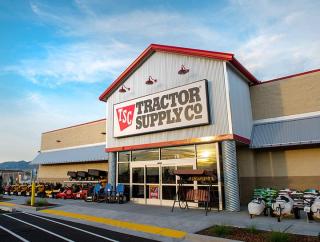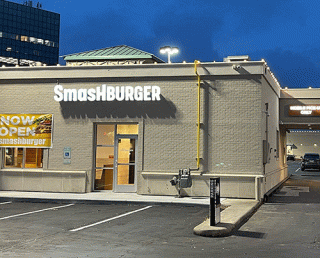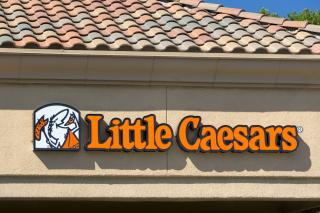News Briefs
Tractor Supply transforms forecasting and replenishment with AI
Tractor Supply Company is obtaining transparency in its supply chain.
The nation’s largest rural lifestyle retailer is implementing the Relex artificial intelligence (AI) and machine learning (ML)-based supply chain forecasting and replenishment solution.
Tractor Supply hopes to obtain greater real-time visibility into its supply chain, enabling the company to better anticipate the needs of its 2,100-plus stores and nine distribution centers while providing forecasts to vendor partners. Leveraging the Relex solution, Tractor Supply will streamline forecasting, replenishment and allocations.
The retailer is enhancing supply chain capabilities as it plans to increase its annual new store openings to 90 beginning in 2025, with a “step up” to 80 locations in 2024. It’s on track to open approximately 70 stores this year.
“Relex allows us to scale our supply chain to support growth with same store sales, new stores and e-commerce,” said Clay Jackson, VP of inventory and planning at Tractor Supply Company. “By centralizing and automating our demand planning, Relex has added a new level of optimization to our supply chain, allowing us to continue to deliver legendary service to our customers.”
“Tractor Supply Company embarked on a journey to upgrade its supply chain systems, conducting a meticulous evaluation process to ensure they found the perfect fit,” said Ron Fleischer, senior VP customer operations, Americas at Relex Solutions. “We are committed to helping Tractor Supply leverage our powerful tools to optimize their supply chain, enhance operations, and cater to the ever-evolving needs of their valued customers. Together, we are poised to drive meaningful change and deliver exceptional results."
Placer.ai enters partnership to bring traffic data to investors
Placer.ai, which burst upon the retail real estate scene five years ago and changed the ways retailers pick locations and operators curate malls, is now setting out to aid investors.
Finance Lobby--an online financing marketplace for commercial borrowers, brokers, and lenders—has entered into a strategic partnership with Placer.ai that will allow its users to compare a retail center’s foot traffic data against other properties in the area.
‘The partnership now brings Placer.ai data directly into Finance Lobby's platform and helps the investor audience leverage an added, data-driven perspective when making critical decisions on retail properties,” said Placer.ai’s CEO and co-founder Noam Ben-Zvi (right).
Gregg Christofferson, Finance Lobby’s senior marketing manager, thinks the alignment with Placer.ai will help real estate buyers and sellers make deals more quickly. Lenders then receive better-matched deals that improves the likelihood of closing them in a shorter amount of time.
"We're thrilled about the possibilities this partnership opens up for our community, bringing us one step closer to our mission of simplifying and streamlining commercial real estate financing," said Christofferson.
Ben-Zvi hopes for this partnership to prove that location analytics can aid the consummation of faster and better deals.
“The more nuanced our understanding can be about real estate performance and potential, the better decisions all parties involved can make,” Ben-Zvi said. “This partnership will begin to uncover the full potential that location analytics can have in optimizing how real estate projects are funded."
Placer.ai tracks retail traffic patterns via data retrieved from cell phones of more than 30 million Americans.
Survey: Data and Technology Disconnects Hurt In-Store Customer Experience
Retailers need to improve data and technology operations to better improve the customer experience, according to a new survey of store leaders and corporate level customer experience decision-makers.
The new study, conducted by Forrester Consulting on behalf of Toshiba Global Commerce Solutions, featured 346 individuals and found that more than half (54%) said that their technology systems are outdated and not connected. Six-in-10 said that too many disparate systems and tools “hinder a cohesive view of their customers and operations,” and nearly eight-in-10 (79%) believe that corporate management does not prioritize unifying stores with digital commerce.
However, the study found that a large majority of respondents believe that using artificial intelligence- (AI) driven tools will improve operations both in-store and online. Ninety-four percent of respondents said that incorporating customer data into the store is very or extremely impactful to the customer experience. Additionally, 91% said that their leadership currently sees those experiences as separate.
According to Toshiba, the top benefits of having a fully-integrated digital and physical customer experience (CX) include increased customer satisfaction, improved brand reputation and improved employee satisfaction.
Per the survey, Impacts expected from fully-integrated physical and digital CX include improved efficiency with customer outreach from use of customer data (55%); improved customer loyalty (51%); reduced employee attrition from better employee experience (EX) (49%); and increased net revenue (49%).
Smashburger synchronizes online orders with kitchen via AI
A fast-casual burger chain is optimizing digital order processing and kitchen operations with artificial intelligence (AI).
Smashburger is deploying the AI-based Curbit order processing solution to dynamically adjust order promise times through continuous real-time analysis of actual kitchen capabilities. The Curbit solution seamlessly integrates with kitchen display systems and online ordering systems, forming a closed loop between the ordering and fulfillment process.
Utilizing advanced AI, these real-time integrations are intended to facilitate dynamic order throttling, kitchen intelligence, and automated customer communication, with the goal of narrowing the gap between estimated and actual ticket times.
After a successsful initial test period in 60 locations, Smashburger rolled out the Curbit software in 129 corporate stores nationwide on Oct. 16, 2023. Pilot results included 84% Improvement in time to pickup and 22% increase in repeat rate.
"With digital ordering, you have one opportunity to impress a first-time customer and very little room for error with returning customer,” said Veronica Luna, senior director of digital engagement of Jollibee Group North America, Smashburger’s parent company. “After witnessing the impressive results in our test markets, the decision to implement the Curbit system across all company-owned locations was a straightforward one.”
"Curbit's collaboration with Smashburger and Jollibee Food Corp. stands as a prime illustration of a technology-driven brand dedicated to embracing digital transformation, and it has clearly yielded the benefits of AI-driven kitchen intelligence," said Scott Siegel, co-founder and chief revenue officer of Curbit.
[Read more: Exclusive Q&A: Smashburger transforms drive-thru with next-gen tech]
Founded in 2007 in Denver, Smashburger has 245 corporate and franchise restaurants operating in 34 states and seven countries.
Little Caesars to grow Chicago, Boston footprints
Detroit-based pizza chain Little Caesars has announced plans to grow its footprint of stores in two major markets.
The third largest pizza chain in the world has signed franchise development agreements that will add 15 new Little Caesars locations in Boston and Chicago. Franchisees Pritpal Bains and Haranchal Bains, who have operated Little Caesars restaurants in California since 1999, plan to establish five new locations throughout Boston by 2027.
Karim Khowaja and Sanjeev Khatau, who have more than 40 years of combined experience in restaurant franchising, are acquiring two existing Little Caesars locations in Chicago with plans to open ten additional restaurants in the city. The couple operates nearly 100 quick-service concepts in Illinois, Michigan, Iowa and California.
"As our expansion gains momentum nationwide, we are eager to build upon our partnerships with experienced multi-unit operators like Pritpal and Haranchal while developing new relationships with industry veterans like Karim and Sanjeev," said Little Caesars chief development officer Jeremy Vitaro. "I'm confident in their enthusiasm for Little Caesars and their passion for their respective communities in Boston and Chicago. We look forward to supporting each group as they build their new restaurants."
Famous for its Hot-N-Ready pizzas, Little Caesars says it is amplifying its expansion into major cities, including its recent commitment to establish 100 new locations in New York City and the Tri-State region. The company added that multi-unit franchising opportunities remain in regions across the U.S., including the Northeast and Pacific Northwest.
Jungle Scout: Amazon prices stabilized in 2023
With the holidays around the corner, Amazon product prices have been less volatile and lower than previous years, according to a new report from Jungle Scout.
The company’s first-ever Amazon Product Pricing Report detailed 6.3 million data points from Jungle Scout’s Amazon product database, and tracked the product price changes over time. Factors that influence pricing include basic economic factors like supply and demand and supply chain challenges, as well as retail holidays and shopping events, algorithmic pricing, seasonality, trends and more.
“Among our sample selection of 150 of the most frequently purchased products on Amazon, 46% increased in average price over the 12-month period between Sept. 1, 2022, and Aug. 31, 2023, while 44% decreased in price and 9% saw no change,” said Jungle Scout. “A detailed look at a cross-section of the products included in this analysis from Amazon’s most popular categories follow.”
Categories with the largest increase in average product price include patio, lawn & garden, Kindle store, home & kitchen, handmade products and video games. Categories with the largest decrease in average product price include music, electronics, appliances, office supplies and toys & games.
Category highlights from the Jungle Scout report include the following:
- Beauty & personal care prices declined by an average of 4%.
- Best sellers in the clothing, shoes & jewelry category saw a small price increase of less than 1%.
- Pet supplies prices increased about 2% during the period.
- The average product price decreased in 19 of the 29 categories.
Jungle Scout added that sellers should formulate pricing strategies that focus on improving their products’ branding to increase perceived value through product packaging, infographics, and product videos.






